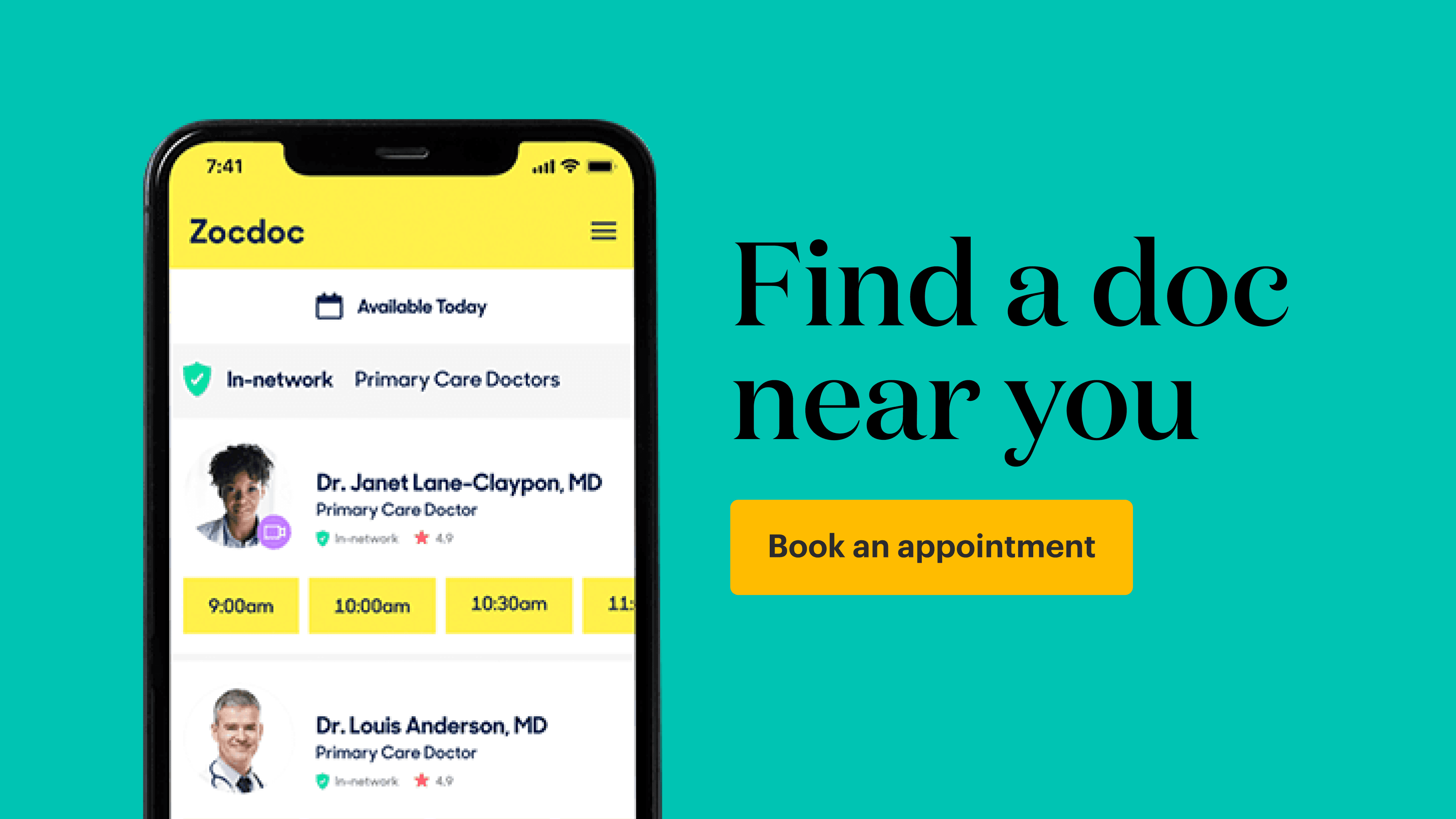Working with a surrogate to help build a family has long been a complicated process. What with the costs, legalities, and allll the waiting. But the pandemic has made things even harder, as it tends to. Enter: the surrogate shortage, which outlets including The New York Times and Fortune have reported on.
We called up Dr. Natalie Crawford and Dr. Lucky Sekhon, fertility doctors and board-certified OB-GYNs, to help Skimm why it’s so hard to find a surrogate right now. (They also spoke to us for an episode of Skimm This.)
Remind me: What is surrogacy?
It’s when someone carries (aka gestates) a baby for someone else. But people tend to say “surrogate” when they usually mean “gestational carrier,” Crawford explained. A gestational carrier is someone who gets pregnant with another person’s embryo through IVF. (The egg used for the embryo would either come from the parent or a donor. But not the person carrying the baby.) Gestational surrogacy is illegal in some countries. And while Arizona bans gestational surrogacy outright, there are some other states that declare gestational surrogacy contracts void and unenforceable. Thing to know: New York was one of these states until last year.
“Traditional surrogacy,” on the other hand, is when the carrier’s own egg is used. These are less common in part because there are even more legal hurdles to work through.
Why do people work with a surrogate?
There are a number of reasons. But one of the most common ones, Dr. Crawford said, is the failure or inability to get pregnant. Maybe because they’ve experienced infertility, had recurrent pregnancy loss, or can’t safely carry a baby to term (which was the case with Kim Kardashian). And there are other reasons too: like if you’re single, in an LGBTQ+ couple, or don’t have a uterus.
Having a baby via surrogate has become more common — there were nearly five times as many gestational surrogacy cycles in 2013 as there were in 1999, according to the CDC’s latest data. But it’s still stigmatized by society. “There’s this automatic assumption that using a gestational carrier might be "easy street,'" Dr. Sekhon said. “There’s a lot of misconceptions [around]...the true medical reasons why people resort to using a gestational carrier.”
Why is there a surrogate shortage?
Before the pandemic, it could take months to connect with a surrogate. Part of the reason: That person would — depending on the agency — fit certain criteria “based on what we know about optimizing the health of pregnancy,” Dr. Sekhon said. Think: a non-smoker who’s carried a pregnancy to term at least once before.
But these days, there appear to be even fewer qualified carriers. Ten agencies across the US saw about a 60% drop in potential surrogates, according to The New York Times. The main issue: Carriers are facing more potential health risks and legal limitations because of the pandemic. For example: being pregnant puts someone more at risk of getting severely ill or dying from COVID-19.
“Pregnancy is not a benign state. There's risks that come with pregnancy,” Dr. Crawford said. “So I think the pandemic, as it has for everybody, has shifted priorities a bit. And in this circumstance, made that risk feel a little too risky.”
Also: A potential surrogate might not want to agree to a contract that mandates getting vaccinated and limiting their exposure, which some intended parents might require due to the pandemic, the doctors told us.
And then potential surrogates have their own lives to tend to. They might be dealing with burnout (who isn’t?) as they manage their own jobs, household duties, and families — the same factors that have caused a national birth rate drop to continue during the pandemic.
Dr. Sekhon said that agencies are telling intended parents to mentally prepare to wait six to 12 months — or longer — before they can connect with a potential surrogate. And for people with very specific ideas of who they want their surrogate to be, Dr. Crawford says it can be “near impossible” to find those people.
What else can make connecting with a surrogate challenging?
We need to talk about cost. They vary by agency and specific needs. But just getting an embryo tested and ready to be transferred to a gestational carrier might cost around $25,000, Dr. Crawford said. And if you work with a surrogate agency, she said the base cost to hire a carrier could be anywhere between $30,000 and $70,000, depending on the carrier’s experience with surrogacy, their location, and any additional costs the intended parents agree to cover. Think: medical expenses, maternity clothes, travel, monthly stipends, and more.
And remember: There are no guarantees that an embryo transfer or pregnancy will be successful. More pregnancy attempts will cost you.
Although working with an international gestational carrier can be less expensive, a number of US fertility clinics won’t do it because it’s just “putting too much risk out there and it is less regulated,” Dr. Crawford said. See: The surrogates and newborns trapped in Ukraine, with biological parents unable to travel there.
Costs aside, it can be tough to find a surrogate who matches the intended parents’ requirements and passes all medical screenings. Working with a surrogate requires “a lot of legwork,” Dr. Sekhon said. And it could be more work for LGBTQ+ couples, who can face discrimination and complicated rules about insurance, adoption, and custody.
If I’m looking for a surrogate, what are my options?
Before doing anything else, see a fertility doctor ASAP. “If you have a medical complication and you’re going to need a carrier, schedule an appointment early to give yourself lots of time,” Dr. Crawford said. You can discuss the process of IVF and embryo transfer, and learn about recommended carrier agencies. Dr. Crawford said that in her clinic, about 75% of people who opt for surrogacy end up using a carrier from an agency.
After that, she recommends being open about your situation with loved ones. Because although people often “presume it’d be too big of a burden” for a friend or relative to carry their baby, “often there’s someone who might be willing.” See: Phoebe on “Friends” serving as the gestational carrier for her brother’s triplets — but IRL. Working with someone you know could possibly put a lot of stress on your relationship. But according to Dr. Crawford, it’ll likely be “easier and less expensive” than working with an agency. Still, Dr. Sekhon emphasizes that there’s hope for connecting with a surrogate through an agency.
“If you just arm yourself with information and support and talk to your fertility clinic… there are enough agencies and advocacy around this,” she said. “Where there's a will, there's a way.”
theSkimm
Working with a surrogate — aka a gestational carrier — is a complex and costly process. And the pandemic has made it even harder. But it’s an option that a number of intended parents go with because they want to have biological children and are unable to carry a baby on their own.
This content is for informational and educational purposes only. It does not constitute a medical opinion, medical advice, or diagnosis or treatment of any particular condition.
Subscribe to Skimm Well + Good
Sign up here to receive our wellness newsletter filled with actionable advice, expert-vetted content, product recs, and more — delivered directly to your inbox.

